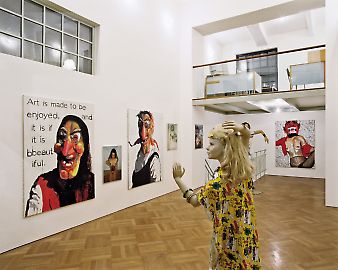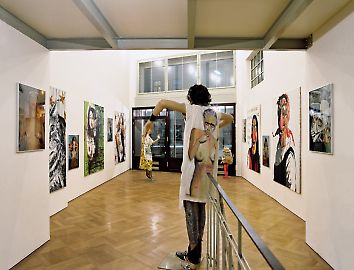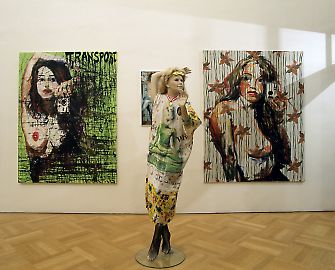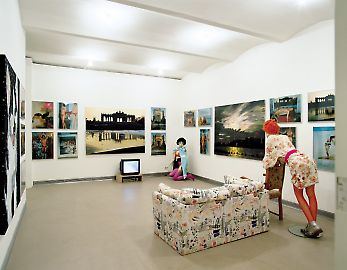Elke Krystufek -- Like nothing you have ever seen
[…] Even if Elke Krystufek constantly revisits certain motifs in her work, one of her strengths is always to create situations which pose more questions than they answer. Even in the numerous interviews she has given in recent years, her successive statements have tended to build the message further and always weave in new perspectives. The principle of not engaging in any universal assessments, not robbing interlocutors of their self-responsibility but also ensuring that communication circulates like in a feedback system, is also one of the main elements in Elke Krystufek’s method of work.
The themes in her work cover the wide spectrum between “I” and “we”: the construction of identity, sexuality and the body and the articulation of desire. They present her self-portrayal for discussion as a projection surface and an interface, visualize social definitions and taboos as a performative game and at the same time offer strategies of refusal. The stringent use of accessories, narratives and backdrops from what seems a private context and the permanent indication that these are not portrayals but highly selected codes recorded and processed in the media, ties into a number of questions: where is the public sphere located, where is the public sphere, when is it the subject that speaks (Elke Krystufek the person/artist, the individual) and when is it the social horizon of experience (both hegemonic and collective)? […]
[At the same time, it is obvious] that the self-portrayals are a media-constructed text which is only partly congruent with Elke Krystufek as a person. […] [A media space emerges] in which two things might become “reality” as a superior interplay of forms: a dialogue of “bodies” meeting (in the widest sense) as the basis of identity-creating social interaction and a pleasurable activity in the midst of fears, fantasies, claims, desires, doubts and definitions. The means to this end is the photo (video) camera, which is present so explicitly in any works or the photographs used as a basis for paintings and drawings. […]
Ricke Frank “Pleasure,” in: catalogue Nackt & Mobil, Edition Sammlung Essl, Klosterneuburg/Vienna 2003, pp. 124-127.





